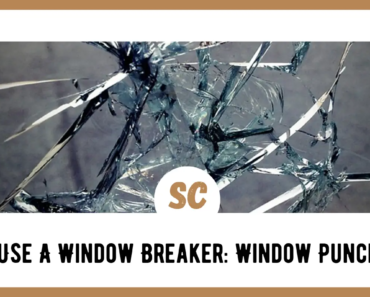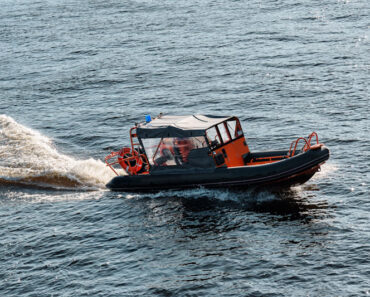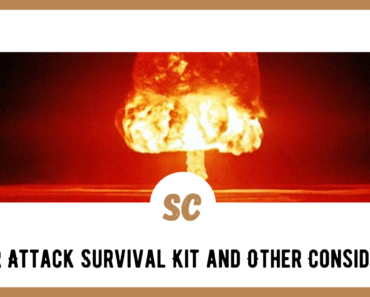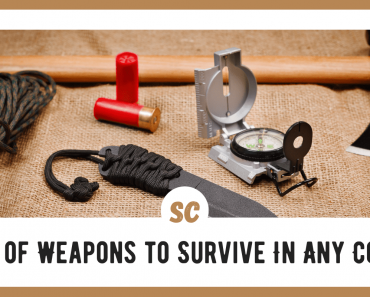Perhaps no other activity will produce more calories of food per calorie spent procuring it than fishing, provided you have the good fortune to have your survival ordeal happen someplace productive fishing is possible. Survivors have been able to catch fish during survival ordeals even though they had no previous experience fishing! That said, learning about fishing and fish biology, practicing fishing using survival fishing methods, and carrying a carefully planned fishing kit will improve your chances of catching fish.
In terms of the fishing equipment they include, most commercial survival kits and survival fishing kits leave a lot to be desired. In some, you are lucky if they include some sewing thread and a couple of hooks sizes for baitfish or fingerling trout. Others include more tackle, but without regard to how well it will store over the years in a small survival kit.
Documentation – Fishing Instructions and Knot Diagrams
Even if you already know how to fish, it doesn’t hurt to review the basics before you fish. In a survival ordeal, you won’t likely be operating at anywhere near your full cognitive capacity due to fear, pain, injury, exposure, dehydration, hunger, and so on.
Earn Your Food Independence NOW
It’s a wise practice to include potentially life saving information that is difficult to remember. This should include diagrams of trot, bank, and drop lines for various species and fishing knots, as well as which knots are appropriate for braided line or knot-able leader wire, joining different types and sizes of line, and so on. Even if you know these things so well you think it would be impossible for you to forget them, even during a survival ordeal, someone else could end up using your kit to save lives.
Moisture Management
Store your fishing kit in a water-resistant pouch or box to prevent the ingress of water. Use indicating desiccants to absorb moisture, and use and non-toxic, odorless, tasteless rust preventatives such as Zerust Plastabs® to prevent rust. Indicating desiccants feature beads that change colors when they have adsorbed water and can be reused after the water is driven out of them by heating them in an oven.
Choosing equipment made of rust-resistant materials will help ensure that your equipment is useable when needed. Most fishhooks and hardware made from ferrous metals will eventually rust, but cheap freshwater hooks used in saltwater rust faster.
Storage & Storage Life
Some fishing gear stores better than others. Manufacturers recommend replacing monofilament fishing line after just a year or two. After this period, it becomes brittle and easier to break. Fluorocarbon line lasts a little longer at 4-6 years and braided fishing line should be replaced after 8-12 years.
If you fish, chances are you have fished with old line and know that it is still possible to catch fish with old fishing line, but why leave it to chance in a survival ordeal? The odds may already be against you and this is one potential problem that you can prevent. So, I think that the type of line you choose is worthy of consideration for survival fishing kits that may be stored for years before use.
Sharp fishhooks give you the best chance of landing your catch, but they can become dulled by bumping up against hard equipment in a survival or fishing kit. They can also puncture plastic bags or even expensive water-resistant pouches if stored improperly, enabling water ingress.
One easy way to protect the points of fishhooks is to strip a short length of insulation of electrical wire that is of a little smaller diameter than the hook itself and push the tip of the hook into insulation. This will take up virtually no space in your kit, help protect your hook from your kit and vice versa.
Fishhooks
Long-shank Aberdeen & O’Shaughnessy fishhooks have advantages for survival fishing. First, the long shank gives you something to grab when removing hooks from fish. Second, it also makes it possible to ties flies, make plugs, spoons, jigs, and a range of other artificial baits by adding a shaped aluminum spoon from a beverage can, drilling holes in a coin or the end of a spoon, carving a wooding plug or body, adding brightly colored cloth or reflective adhesive tape, or tying on some hair and/or feathers. Third, the long shank can also help prevent toothed fish from biting through your line.
That doesn’t mean these are the only type of fishhooks you should include. You might include a few weedless hooks or even some short-shanked baitholder hooks if they are known to be effective on species found where you might be using your kit.
As to size, I recommend carrying a range of sizes both to size them to whatever is available but also because they nest better for packing in a small resealable bag. Go with smaller rather than larger sizes because “you can catch a big fish on a small hook, but you can’t catch a small fish on a big hook.”
While many survival kits, and even a few survival fishing kits include 2-4 hooks, it is a safer bet to think in terms of dozens of hooks for survival fishing. They take up little room and are very light and while you may be limited as to how many hooks you can put in the water for recreational fishing, you should do what you need to do to save lives. In all the thousands of survival ordeals I have researched, I have yet to hear of a survivor getting slapped with fines or other penalties for fishing, either because it’s rare in the extreme or because the decision is a no brainer. The more baited hooks you get in the water, the better your chances of catching something are and the better your chances of survival. Saltwater longline fisherman sometimes put thousands of hooks on a single line.
Seal a few indicating desiccant pellets mentioned earlier in the bag with your hooks to help prevent rust. If there is a chance that you could end up using them in saltwater, then they should be made of stainless steel or other materials and finishes suitable for use in saltwater.
Fishing Line
You’ll need lighter fishing line in the 8-15 Lbs range for small fish and baitfish, heavier line in the 30-60 Lbs range for gamefish, and hand line in the 80-200 Lbs range for hand, trot, bank, and drop lines and for float and foot (or sinker) lines for gill nets, should you make one. Attempting to take fish that need line stronger than 60 Lbs during a survival ordeal or so is likely to result in either injury or damaged or lost equipment.
As explained under the “storage” heading, braided line is best suited for fishing line survival fishing kits. 85-188 Lbs Kevlar®, 200 Lbs Technora®, type 1A para cord, or tarred bank line work fine for the heavier handline.
Line can be stored on a thread card or kite winder, but a silicone bobbin, handline reel/caster or a small Cuban yo-yo will help prevent braided line from kinking and can be used to cast and retrieve line. You can fish with 30-50’ of line, or less if only the leader is made of fishing line and heavier line is used for the handline, but having more line and hooks to work with makes it possible to set more lines and get more hooks in the water.
A rod or rod and reel can be improvised in the field and provides additional sensitivity to feel bites from fish that do not strike the bait hard and aid in setting the hook, positioning the line, and preventing it from snagging while angling. Eyes can be formed from brass snare wire or you can include a few small, rust-resistant eye screws.
Weights
Removeable split shot sinker and bank sinkers will cover most survival fishing needs, but a couple of egg sinkers may also come in handy for casting with a handline. On land, weights can be improvised from pebbles and leader wire or brass snare wire. Casting with handlines requires heavier sinkers that most recreational fisherman are used to using with fishing rods.
Swivels
Swivels help prevent the fishing line from twisting and becoming tangled. Quality strong swivels and snap hooks are small and take up little room and it is nice to have a few for casting with a handline. Choosing saltwater swivels and snap hooks rated for your leader wire will prevent you from having to carry more than one size, although they can also be used with wire snares to prevent trapped animals from breaking the wire by twisting it, so you might also include heavier swivels for that purpose in your food procurement kit.
Bait
Fresh bait does not store well in survival kits unless it has been dehydrated. Military Speedhook snares used to come with scented, dehydrated bait pellets that plump up when placed in water, but I understand they switched to dehydrated mealworms. Synthetic bait stores better and synthetic crappie bites or salmon eggs can be stored in small plastic tubes with PVC end caps or plastic needle holders.
Artificial Baits & Lures
Metal spoons, jig heads, plugs, and flies can catch a diverse array of fish species and store well in kits. Small glow-in-the-dark lures and jigs can also be used for both ice fishing and night fishing, adapting to a range of environments.
Consider avoiding plastic baits because they can break down, melt, and stick together if your fishing kit is subjected to high temperatures or stored for long periods.
Treble hooks can be replaced with single or double hooks to help lures pack flatter in small kits.
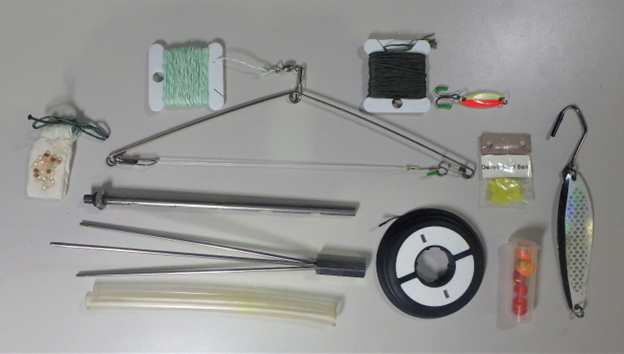
Leaders, Leader Wire
Wire leaders are necessary if you may be fishing for toothy predatory species that may otherwise bit through your line. This has happened to survivors including Steven Callahan who noted that wire or wire leaders were something he would add to his survival fishing kit after dorados bit through the cod line he had included in the kit he used during his survival ordeal adrift in a life raft for 76 days in the Atlantic. Unable to catch the large fish with line, he was forced to switch to a small speargun he included as a last-minute purchase.
You could toss a couple wire leaders in your kit and call it good. It wouldn’t be a bad thing to have a couple of leaders ready to fish, but I also pack knot-able, coated stainless steel leader wire, strong swivels, and snap hooks so I can make the type and length of leader I need, but also because it has so many other uses. Like braided fishing line, only certain knots work with knot-able leader wire, so you’ll want to note them in the instructions you include.
Floats
Floats are easily improvised from wood, but when I include floats in fishing kits, plastic Adjust-a-Bubble® floats are much more rugged than Styrofoam floats and pack flatter than round bobbers.
Gaff Hook
A large 6/0-9/0 long-shank O’Shaughnessy hook can be lashed to a short handle when needed to be used as a gaff hook, preventing loss during landing, when most fish are lost.
Gig or Fish Spear Head
Sometimes fish may not be biting, you may see frogs, but not fish, or, like Steven Callahan, you might have to adapt to catch fish with a spear because your fishing gear is ineffective. A paralyzer gig head is compact and light weight. Just supply the shaft and zip ties or cordage to lash it to the shaft and you have a gig or fish spear. Add a band of surgical tubing or similar elastic material to the base and you have a fling spear.
Speedhook® Snares
Military Speedhook® snares are much lighter than fishing yo-yo’s and are highly effective. They can be set at any depth and can catch birds and squirrels in addition to fish. Like bank lines, they also fish for you while you tend to other tasks. Unlike bank lines, they set the hook.
Tools
A pair of small pliers and a knife are useful for fishing, and you probably already carry them on your person or in your Pocket Survival Kit. Many kits contain a scalpel blade or Derma-Safe® razor when space is short, but a replaceable Havalon® fillet blade is better-suited to the task.


